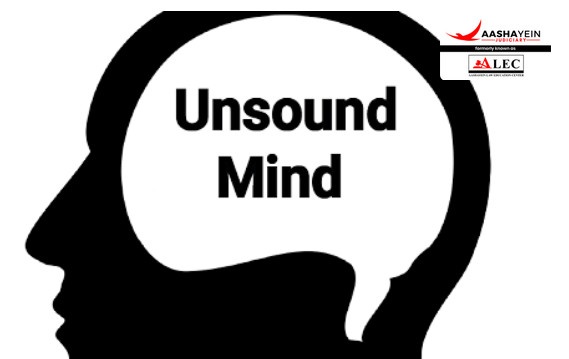This case involves a legal dispute concerning the competence of a person of unsound mind to enter into a contract. The issue centers around whether insanity or mental incompetence can be used as a defense to void a contract. The case arose from a property transaction where the title of a disputed property was sold by the son, who was alleged to be mentally incapacitated, to a landowner at a significantly lower price than its actual value. The mother of the son, claiming that her son was a lunatic, filed a case to invalidate the contract, asserting that her son was tricked into the sale due to his mental state.
Facts of the case
The disputed property was bequeathed by a deceased father to his son, who then decided to sell it to a landowner at INR 7,000, which was significantly lower than the property's actual worth of INR 25,000. The landowner paid an advance of INR 700. Upon learning about the sale, the deceased’s wife (the son’s mother) claimed that her son was a lunatic and thus not competent to enter into a contract. She filed a case in the Registrar’s Court, arguing that her son, being mentally incompetent, was tricked into entering the contract. The landowner, appealed the decision in the Patna High Court.
Issues:
- The main issue in this case was whether a mentally incompetent person (i.e., insane) can be deemed incapable of entering into a contract. Specifically, can a third party (the mother) raise this issue, even though she was not a party to the contract?
Arguments of the Petitioner
The petitioner (landowner) argued that the contract was made between him and the son, not with the mother. Since she was not a party to the contract, she had no standing to challenge its validity. The petitioner relied on the principle of privity of contract, asserting that only parties to the contract could raise concerns about its validity. He contended that the mother's argument regarding the inadequacy of the consideration was not relevant, as she had no direct involvement in the transaction.
You can also read the Blog by visiting [Blog]
For more information, visit [Aashayein Enquiry Section]
Arguments of the Respondent:
The respondent (mother) relied on the defense of insanity to claim that her son was not capable of understanding the terms of the contract. She argued that since her son was a lunatic at the time of entering the contract, the contract should be automatically declared void. She also pointed out that the property was worth INR 25,000, but her son sold it for INR 7,000, further highlighting the unfairness of the transaction.
Analysis of the Court
Justice Sinha emphasized that under Indian law, a person is deemed of sound mind to enter into a contract if they can understand the contract and form a rational judgment about its effect on their interests. He referred to Section 12 of the Indian Contract Act, 1862, which states that a person entering into a contract must be capable of understanding what they are doing and form a rational judgment about whether it is in their interest. He made it clear that a person does not need to be suffering from full-blown lunacy to be deemed incapable of contracting; even someone who behaves normally but cannot make rational judgments about their interests may be considered mentally incompetent.
The court ruled in favor of the mother (respondent). It was determined that there was sufficient evidence to show that the son was a lunatic at the time of the contract. The evidence indicated that the son was incapable of understanding the nature of the transaction and its effect on his interests. Therefore, the contract was declared void. The court also rejected the petitioner’s argument about the privity of the contract, stating that this issue was irrelevant to the case. It further held that the mother had the right to challenge the contract, as her son was mentally incapacitated and could not represent himself in court.
Concluding Remark
This case reinforces the principle that a person who is mentally incapable of understanding the nature of their actions cannot be bound by a contract. Under Indian law, for a contract to be valid, both parties must be capable of making rational decisions. The burden of proving insanity lies with the party alleging it, and the mental incapacity must be proven to have existed at the time of contract formation. The ruling highlights the need for protecting vulnerable individuals from exploitation due to their mental state.
In conclusion, the case underscores the importance of mental competency in contract law and ensures that individuals who are mentally incapacitated are not unfairly bound by agreements they cannot comprehend.

